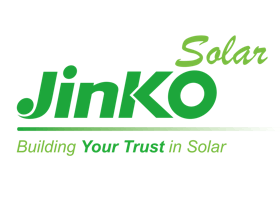The module makers eventually cannot bear the cost pressure anymore which is transmitted from upstream sector as material shortages continues ascend. This is reflected in the actions of almost all industry giants like JinkoSolar, Longi, JA, which reversed their price cut policy and raise their bid quotation, others have already notified their customers of the price hike.
The reason behind is that quotations of polysilicon are continuously rising since March, with procurement on the product becoming difficult. The recent polysilicon price announced by local major suppliers has increased another 10 per cent compared to Q4 2020 despite their fabs running at 100 percent capacity.
Pertaining to overseas markets, the prevention and control on the pandemic has decelerated the speed of logistics for imported polysilicon, as well as extended the duration of clearance, and coupling with the unresolved issues regarding the unmitigated shortages in shipping containers and the rise in cost, the overseas quotations for polysilicon will continue to rise.
Attributable to the polysilicon insufficiency, the observational period will last longer than expected, the volume of concluded transactions across entire supply chain remained insignificant and the transmission to module sector has already been clear.
As a result, module prices have overall increased, and a continuous inflation is seen in mainstream mono-Si products due to cost pressure. The highest price offered in China market is up to 1.78 RMB/watt, followed by a substantial adjustment appeared in the module market.
Tier module makers have commented on the significant increase in the cost of auxiliary materials in addition to the apparent rise in cells, and are forced to upward adjust on module quotations due to cost pressure, while the end purchasers are now even more conservative by taking into account the emergency of orders.
An observation on the current status of the tender market of modules indicates that the bargaining period between businesses and the downstream & upstream sectors is carrying on amidst the elevating costs. A number of domestic projects are becoming rigorous on the requirements for module makers regarding clear definitions on the delivery schedule and the highest quotations, where partial projects are even stipulating regulations on the current and dimension of modules.
Pertaining to overseas markets, the previously postponed and new demand continues to release, though the upstream inflation has resulted in an increase in the tender prices of several market projects, which extends the project schedule. The turbulence of solar PV supply chain will last at least three months or longer till supply and demand will further improve and rebalance again.
Publish your content with EB Publishing
It's about who you reach. Get your news, events, jobs and thought leadership seen by those who matter to you.











